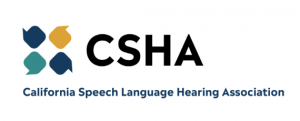When To Seek Advice for a Tongue Tie
Melissa Peters, M.S., CCC-SLP
When should you consider feeding or speech therapy if your child has a tongue-tie? Current research indicates that between 4.2% – 10% of children are born with a tongue-tie. The medical term for tongue tie is ankyloglossia. Many times, tongue ties are realized soon after birth because of infants having trouble feeding and gaining weight. However, what if your child presents with a tongue tie but had no trouble feeding as an infant? When should you seek a professional opinion about your child’s tongue tie?
If there is no visible effect on your child’s speech or feeding development, then it may not be necessary to get your child’s tongue tie looked out. However, there are some signs and symptoms that may warrant a professional opinion in terms of whether a medical procedure may help your child.
Feeding symptoms that may warrant a second opinion:
1. Long and/or painful feeding on the breast
2. Clicking noises while taking breast or bottle
3. Excessive dribbling when taking a bottle or breastfeeding
4. Poor weight gain
5. Difficulty transitioning to solids or purees from breastfeeding

Speech symptoms that may warrant a second opinion:
1. Difficulty pronouncing certain sounds
a. The following sounds all need tongue mobility and may be affected by a tongue tie: l, r, t, d, n, th, sh, and z
2. Difficulty understanding your child when they speak. A 3-year-old child should be between 75%-100% intelligible by adults (Weiss, 1982).
It is important to remember, that even if your child does display these signs and symptoms, it may not warrant any medical treatment for your child’s tongue tie. Just because your child has a tongue tie does not mean that it is the cause of your child’s speech or feeding symptoms (Webb, 2013). It is important to get a second opinion from medical professionals to determine whether treatment for your child’s tongue tie is necessary. Medical professionals such as speech-language pathologists, Ear Nose and Throat (ENT) doctors, pediatricians, and pediatric dentists who specialize in tongue-tie are a great place to start when determining whether your child would benefit from tongue-tie release surgery. Speech-language pathologists can help with oral motor and feeding therapy to help relieve some of the symptoms of having a tongue tie.
References:
Webb, Amanda N. et al.International Journal of Pediatric Otorhinolaryngology, Volume 77, Issue 5, 635 – 646
Weiss, CE (1982). Weiss Intelligibility Test. Tigard, OR: CC. Publications.The effect of tongue-tie division on breastfeeding and speech articulation: A systematic review.





